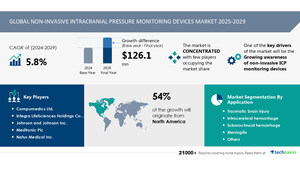NEW YORK, Sept. 18, 2024 /PRNewswire/ -- Report on how AI is driving market transformation- The global ethyl alcohol market size is estimated to grow by USD 16.94 billion from 2024-2028, according to Technavio. The market is estimated to grow at a CAGR of 5.28% during the forecast period. High availability of feedstock is driving market growth, with a trend towards reduction in arable land. However, increasing demand for electric vehicles poses a challenge. Key market players include ALTO INGREDIENTS Inc., Archer Daniels Midland Co., BP Plc, Cargill Inc., CropEnergies AG, GranBio Investimentos SA, INEOS AG, JEPSON COMMODITIES, Jubilant Ingrevia Ltd., Kanoria Chemicals and Industries Ltd., LyondellBasell Industries N.V., Merck KGaA, Mitsubishi Chemical Group Corp., POET LLC, Sasol Ltd., The Andersons Inc., Thermo Fisher Scientific Inc., and Valero Energy Corp..
Key insights into market evolution with AI-powered analysis. Explore trends, segmentation, and growth drivers- View the snapshot of this report
Ethyl Alcohol Market Scope |
|
Report Coverage |
Details |
Base year |
2023 |
Historic period |
2018 - 2022 |
Forecast period |
2024-2028 |
Growth momentum & CAGR |
Accelerate at a CAGR of 5.28% |
Market growth 2024-2028 |
USD 16941.4 million |
Market structure |
Fragmented |
YoY growth 2022-2023 (%) |
4.92 |
Regional analysis |
North America, South America, Europe, APAC, and Middle East and Africa |
Performing market contribution |
North America at 44% |
Key countries |
US, Brazil, Germany, Canada, and China |
Key companies profiled |
ALTO INGREDIENTS Inc., Archer Daniels Midland Co., BP Plc, Cargill Inc., CropEnergies AG, GranBio Investimentos SA, INEOS AG, JEPSON COMMODITIES, Jubilant Ingrevia Ltd., Kanoria Chemicals and Industries Ltd., LyondellBasell Industries N.V., Merck KGaA, Mitsubishi Chemical Group Corp., POET LLC, Sasol Ltd., The Andersons Inc., Thermo Fisher Scientific Inc., and Valero Energy Corp. |
Market Driver
The global ethyl alcohol market may experience a setback due to the shrinking arable land worldwide. With population growth and urbanization reducing available farmland, the demand for food grains is projected to increase significantly by 2030. Developing nations like China, Brazil, and India will require an additional 120 million hectares to meet this demand. Corn, a primary raw material for ethanol production, may face production challenges due to the decrease in arable land. Consequently, the global ethyl alcohol market could experience reduced growth during the forecast period.
Ethyl alcohol, also known as ethanol, is a popular biofuel and industrial solvent. The market for ethyl alcohol is diverse, with key players including Aventine Renewable Energy for grain-based ethanol and Poet Biorefining for sugar and molasses-based ethanol. Denatured ethanol is used as a fuel additive, while undenatured ethanol is used in beverages, personal care, and disinfectants. The automotive sector relies on ethanol as a biofuel, often blended with petrol to reduce reliance on fossil fuels like crude oil and natural gas. Ethyl alcohol is also used as a biofuel in the transportation sector, with bioethanol produced from corn and other grains. Stringent regulations govern the production and use of ethanol-blended fuels. Companies like ADM and Valero lead in ethanol production capacity. Ethyl alcohol is also used as an industrial solvent in chemicals, transportation sector, paints and coatings, and denaturants like Methyl T-butyl ether. The market for ethanol is expanding due to the growing demand for renewable fuels and the production of hand sanitizers during the Coronavirus pandemic.
Request Sample of our comprehensive report now to stay ahead in the AI-driven market evolution!
Market Challenges
- The global automotive industry is experiencing a significant shift towards electric vehicles (EVs) due to increasing consumer preference for eco-friendly transportation solutions. This trend poses a threat to the demand for conventional automobiles, including those powered by ethanol-based internal combustion engines. In recent news, Opel and Nissan have announced plans to expand their EV production capacities in Morocco and the UK, respectively. The UAE government also intends to make public transport in Dubai emission-free by 2050. Major automakers like Tesla, BMW, Ford, and Asian manufacturers such as BYD, Beijing Electric Vehicle, ZhiDou, Shanghai Auto, and Zotye are leading the EV production market. The US, Germany, and Japan are other significant contributors. The rise in EV production will decrease the demand for petroleum-based fuel engines and ultimately impact ethyl alcohol consumption negatively, potentially hindering the ethyl alcohol market's growth during the forecast period.
- The Ethyl Alcohol market faces several challenges in various sectors. In the fuel industry, crude oil and natural gas price fluctuations impact ethanol production costs. Bioethanol, a key competitor, also influences the market. Stringent regulations on ethanol-blended fuels require compliance, increasing production costs for players like Poet Biorefining, ADM, and Valero. The renewable fuels association advocates for growth, but challenges persist. Methyl T-butyl ether and synthetic alternatives pose threats to ethanol's market share as industrial solvents and chemicals. The transportation sector's shift towards renewable fuels presents opportunities. In the industrial sector, ethanol serves as a raw material for biofuels, fuels, and chemicals. The pandemic has disrupted the market, with alcohol-based hand sanitizers and alcoholic beverages seeing increased demand. The grain-based and denatured alcohol segments have been impacted by the Coronavirus disease and raw material availability. The aviation industry's carbon emission concerns and bacteria, viruses, and fungi's resistance to ethanol are ongoing challenges. Precedence Statistics and Braskem are significant players in the ethanol market.
Discover how AI is revolutionizing market trends- Get your access now!
Segment Overview
This ethyl alcohol market report extensively covers market segmentation by
- Application
- 1.1 Automotive
- 1.2 Food and beverages
- 1.3 Personal care
- 1.4 Pharmaceutical
- 1.5 Others
- Geography
- 2.1 North America
- 2.2 South America
- 2.3 Europe
- 2.4 APAC
- 2.5 Middle East and Africa
1.1 Automotive- The Ethyl Alcohol market is a significant sector in the global beverage and industrial industries. Producers supply ethanol primarily for use in beverages, fuel, and industrial applications. Key players include Diageo, Bacardi, and Pernod Ricard. Demand is driven by consumer preferences for alcoholic beverages and the growing biofuels market. Ethyl Alcohol production is mainly from corn, sugarcane, and wheat. Government policies and trade regulations impact market dynamics.
Download a Sample of our comprehensive report today to discover how AI-driven innovations are reshaping competitive dynamics
Research Analysis
Ethyl alcohol, also known as ethanol, is a grain-based and biobased alcohol used in various industries. It is primarily utilized in the production of alcoholic beverages, accounting for over half of global consumption. However, its usage extends beyond beverages, with significant demand coming from the production of alcohol-based hand sanitizers and as a biofuel. The aviation industry is a major consumer, using ethyl alcohol as a fuel substitute to reduce carbon emissions. In the biofuel sector, ethyl alcohol is used as a component in bioethanol production, providing an alternative to fossil fuels like crude oil and natural gas. Ethyl alcohol is also used as an industrial solvent, chemical feedstock, and denaturant in the production of methyl T-butyl ether. The Coronavirus disease has boosted demand for alcohol-based hand sanitizers, while bacteria and other microorganisms are common contaminants in ethyl alcohol production processes. The Renewable Fuels Association and other industry groups advocate for the use of ethyl alcohol as a renewable fuel and industrial feedstock, promoting sustainability and reducing reliance on traditional fuels.
Market Research Overview
Ethyl alcohol, also known as ethanol, is a grain-based or sugar-derived alcohol primarily used as a recreational and industrial chemical. It is a key component in alcoholic beverages and has gained significant importance in recent times due to its use in alcohol-based hand sanitizers. The grain-based segment dominates the ethyl alcohol market, with major sources being corn, wheat, and barley. The denatured alcohol segment is also growing due to its applications as a solvent, industrial fuel, and in the production of biofuels, such as ethanol-blended fuels and bioethanol. The aviation industry is a significant consumer of ethyl alcohol as a fuel, but its carbon emissions contribute to environmental concerns. The coronavirus disease outbreak has led to a growth in demand for ethanol in the production of hand sanitizers, further boosting the market. Ethyl alcohol is effective against bacteria, viruses, and fungi, making it an essential disinfectant. Raw materials for ethyl alcohol production include grains, sugar, and molasses. Ethyl alcohol is also used as a biofuel and as a solvent in various industries, including automotive, chemicals, and transportation. The Renewable Fuels Association reports that ethanol production capacity in the US Midwest is increasing, with companies like Poet Biorefining leading the way. Ethyl alcohol is also used as a denaturant in denatured ethanol, making it unsuitable for consumption. Undenatured ethanol, on the other hand, is used in beverages, food processing, and as a solvent in the production of distilled spirits, wine, and beer. The market for ethyl alcohol is expected to grow due to increasing demand from various end-use industries and the shift towards renewable fuels. However, stringent regulations and the availability of alternatives like methyl T-butyl ether and synthetic solvents may limit the growth of the ethyl alcohol market. The market is competitive, with major players including Braskem and Aventine Renewable Energy focusing on the grain-based source, while ADM and Valero dominate the denatured ethanol segment. Distiller grains are a byproduct of ethanol production and are used as animal feed, further increasing its importance in the market.
Table of Contents:
1 Executive Summary
2 Market Landscape
3 Market Sizing
4 Historic Market Size
5 Five Forces Analysis
6 Market Segmentation
- Application
- Automotive
- Food And Beverages
- Personal Care
- Pharmaceutical
- Others
- Geography
- North America
- South America
- Europe
- APAC
- Middle East And Africa
7 Customer Landscape
8 Geographic Landscape
9 Drivers, Challenges, and Trends
10 Company Landscape
11 Company Analysis
12 Appendix
About Technavio
Technavio is a leading global technology research and advisory company. Their research and analysis focuses on emerging market trends and provides actionable insights to help businesses identify market opportunities and develop effective strategies to optimize their market positions.
With over 500 specialized analysts, Technavio's report library consists of more than 17,000 reports and counting, covering 800 technologies, spanning across 50 countries. Their client base consists of enterprises of all sizes, including more than 100 Fortune 500 companies. This growing client base relies on Technavio's comprehensive coverage, extensive research, and actionable market insights to identify opportunities in existing and potential markets and assess their competitive positions within changing market scenarios.
Contacts
Technavio Research
Jesse Maida
Media & Marketing Executive
US: +1 844 364 1100
UK: +44 203 893 3200
Email: [email protected]
Website: www.technavio.com/
SOURCE Technavio

WANT YOUR COMPANY'S NEWS FEATURED ON PRNEWSWIRE.COM?
Newsrooms &
Influencers
Digital Media
Outlets
Journalists
Opted In



Share this article